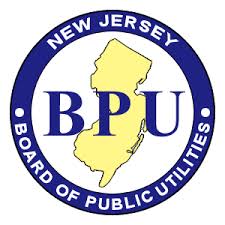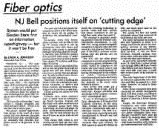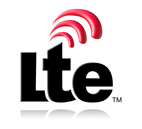
Verizon’s FiOS expansion is still dead.
New Jersey’s Board of Public Utilities has heard from hundreds of New Jersey residents about a settlement proposal that would let Verizon off the hook for failing to keep a commitment to provide high-speed broadband service statewide no later than 2010.
Curiously, hundreds of those comments were identical e-mails originating from AOL, Hotmail, MSN and Yahoo mail accounts urging the state to show lenience to Verizon — to forgive and forget the company’s broken promises. No mailing addresses were included. But the attached names and e-mail addresses were enough for Stop the Cap! to discover many of those submitting comments used non-working e-mail addresses or claimed their names were submitted without their knowledge or permission. Many others were actually employed by Verizon or were retirees.
“The proposed stipulation is fair and balanced and under your guidance, will build on the success that the Board and Verizon have achieved in making the Garden State one of the most wired broadband states in the country,” writes David Gudino, who doesn’t disclose in his correspondence with the BPU that his name is included in a list of attorneys working for Verizon Wireless.
“I would like to declare my support for the proposed stipulation between your Board Staff and Verizon as it relates to Opportunity New Jersey,” says another on behalf of an organization getting contributions from Verizon. “The stipulation will help ensure continued deployment of advanced communications services. Access to these services will not only benefit New Jersey’s businesses and nonprofits, but consumers of all ages as well.”
 By “advanced communications services,” the letter’s signers should know very well that means more 4G LTE wireless broadband with stingy usage caps and high prices, not more FiOS fiber to the home service.
By “advanced communications services,” the letter’s signers should know very well that means more 4G LTE wireless broadband with stingy usage caps and high prices, not more FiOS fiber to the home service.
What proved especially surprising was finding so many customers claiming to be happy with Verizon’s broadband performance in New Jersey who are still relying on AOL dial-up accounts. Stop the Cap! contacted a random 150 signers of the identical letters by using their attached e-mail addresses, which are part of the public record. We asked the writers to expand on their views about Verizon’s performance in New Jersey, whether they were satisfied with their current Internet provider, whether they have broadband service, and where they learned about this issue.
Remarkably, 35 of the e-mail addresses turned out to be invalid, so we contacted an extra 35 and 12 of those e-mail addresses were invalid as well. We found this unsettling because the only identifying information attached to the pro-Verizon correspondence was a name and e-mail address. We couldn’t be sure the authors were New Jersey residents much less real people.
We received 18 replies. Several were Verizon retirees asked to sign letters of support for Verizon. Another five had no idea what we were talking about and denied they submitted any views, pro or con, about Verizon. Three of those were Comcast customers that said goodbye to Verizon more than a decade earlier. Many others were associated with groups that happen to receive financial support from Verizon. Several had no broadband access and were using dial-up.
Stop the Cap! did not receive a single reply from any person ready to articulate informed views about the terms of the settlement offer. They were simply asked to lend their names and e-mail addresses to Verizon’s campaign and had never seen the settlement proposal or heard much about it.
 Judith Stoma’s family has worked for Verizon/NJ Bell since 1958. She’s 71 years old today and she supports Verizon, at least in its efforts to “lead the way with N.J. at the forefront of technology.” Abdicating on FiOS expansion in favor of the same old DSL service Verizon proposes in its settlement seems to run contrary to that goal.
Judith Stoma’s family has worked for Verizon/NJ Bell since 1958. She’s 71 years old today and she supports Verizon, at least in its efforts to “lead the way with N.J. at the forefront of technology.” Abdicating on FiOS expansion in favor of the same old DSL service Verizon proposes in its settlement seems to run contrary to that goal.
In several other instances, some of Verizon’s “supporters” actually used a space provided in the form letter to vent their frustration with Verizon!
Michael DeNude was irritated he never got FiOS: “We live in Riverdale and have not benefited by any upgrade.”
Paula Thomas was annoyed that Verizon outsources its workforce: “Verizon already outsources their telephone [operator] service. They should also guarantee that U.S. Citizens are given preference in the ‘job growth’ they ensure will happen.”
William Barlen thinks it’s a shame the current state of broadband in the U.S. is lacking: “It is sad that we have dropped behind over 50 countries on broadband speed and deployment. If you do not support this work exactly what are you doing?”
Paul Minenna is concerned that without FiOS broadband, speedier Internet access is not forthcoming: “Please make sure that you keep NJ moving forward with top-notch technology access. This is not the time to slow down Internet access.”
John Zilg’s letter is the same as nearly every other in support of Verizon, until he was given the opportunity to include his own remarks, which are completely contrary to everything else in the letter: “It is critical to continue supporting what has already been put into place. I urge you to not change direction.”
It is easily apparent that among the letters in support of Verizon, more than a few were not at all informed about what they were signing, and in many cases actually held completely different views when someone took the time to inquire in more detail. We are also very concerned about the number of invalid e-mail addresses attached to letters that carried no mailing address. On an issue of this importance, it is disturbing to not be certain those communications represent the legitimate views of actual New Jersey residents.
These factors must be taken into consideration as the Board of Public Utilities ponders the public input.


 Subscribe
Subscribe




 AT&T supervisors ordered operators to aid Nigerian fraudsters making free calls that cost millions in credit card fraud and the life savings of some victims, while AT&T collected more than $16 million in reimbursements paid by telephone ratepayers across the country.
AT&T supervisors ordered operators to aid Nigerian fraudsters making free calls that cost millions in credit card fraud and the life savings of some victims, while AT&T collected more than $16 million in reimbursements paid by telephone ratepayers across the country. AT&T’s international relay service offered those overseas the opportunity to make a free, untraceable relay phone call to any number in the United States. AT&T billed the FCC-administered fund $1.30 a minute for calls placed through the relay operator.
AT&T’s international relay service offered those overseas the opportunity to make a free, untraceable relay phone call to any number in the United States. AT&T billed the FCC-administered fund $1.30 a minute for calls placed through the relay operator.
 AT&T has agreed to pay an extra $3.5 million in addition to the $18.25 million already paid to settle Justice Department claims the company knowingly overbilled the government for reimbursement of fraudulent international relay calls usually made by scammers originating from countries like Nigeria.
AT&T has agreed to pay an extra $3.5 million in addition to the $18.25 million already paid to settle Justice Department claims the company knowingly overbilled the government for reimbursement of fraudulent international relay calls usually made by scammers originating from countries like Nigeria.


